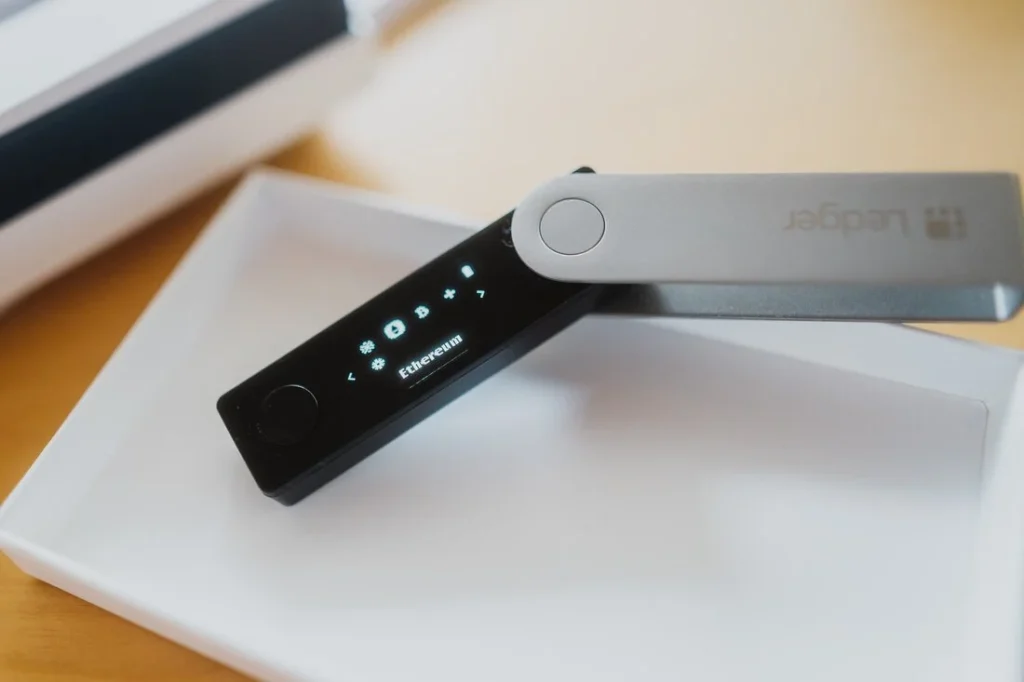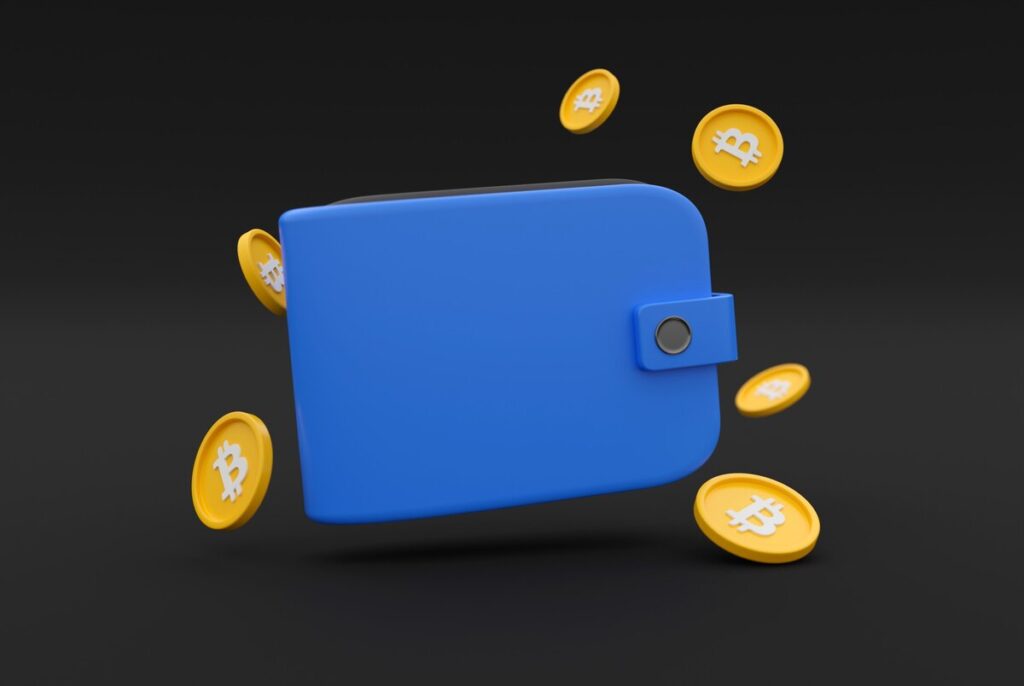To buy and sell cryptocurrency, you need a tool to handle your coins, it is called a “cryptocurrency wallet”. Transactions in cryptocurrency are impossible without it.
They serve as personal interfaces to the blockchain, the technology underlying cryptocurrencies.
What are cryptocurrency wallets, why they’re important, how do they function, and what are the factors to consider when choosing a wallet?

Understanding Cryptocurrency Wallets
Your cryptocurrency wallet can be likened to your conventional physical bank account. The major difference is the mode of storage.
Instead of storing paper bills and coins, crypto wallets store digital currencies, like Bitcoin and Altcoins.
Simply put, a cryptocurrency wallet is a software program that lets you store, track, and manage your digital currencies.
A cryptocurrency wallet allows you to send, receive and store your digital assets securely. It makes sure that you are the only one who can access your cryptocurrencies.
The Role of Crypto Wallets
- Crypto wallets allow you to interact with blockchain technology.
- It allows you to make transactions on this blockchain network. These transactions might be to send, receive, or store your digital currencies.
- Crypto wallets ensure that you and only you have control over your digital money.
- They make financial transactions easy and faster.
Types
There are different types of that cater to different needs and preferences. In one of our articles, we outlined and explained the categories of crypto wallet into three:
- Hot Wallets which relies on the internet
- Cold Wallets which are offline and are considered more secure than hot wallets.
- Hybrid Wallets combine the convenience of hot wallets and the security of cold wallets.
Types of hot wallets are:
- Online wallets
- Mobile wallets
- Desktop wallets
Falling under cold wallets are:
- Hardware wallets
- Paper wallets
Each type of crypto wallet offers its unique benefits and drawbacks. What are the pros and cons of theses wallets?
Advantages of Hot Wallets
- Ease of Use: Hot wallets are often user-friendly, making them an excellent choice for beginners.
- Quick Transactions: As they’re online, hot wallets facilitate instant transactions.
- Versatility: Many hot wallets support a range of cryptocurrencies, providing flexibility.
Challenges of using hot wallets:
- Vulnerability: Hot wallets are more susceptible to online threats like hacking due to their always-online nature.
- Dependence on a Provider: Some hot wallets require reliance on a third-party provider, which could be a potential point of failure.
Advantages Cold Wallets
- Security: Cold wallets provide the highest level of security for your crypto assets since they’re offline.
- Ownership: You have full control of your private keys, reducing dependence on third parties.
Challenges associated with cold wallet
- Less Convenient: Accessing and transferring cryptocurrencies isn’t as immediate or straightforward as with hot wallets.
- Risk of Loss: If you lose your hardware wallet or paper wallet, recovery can be complicated or impossible.
Benefits of Hybrid Wallets
- Balance of Security and Convenience: Hybrid wallets aim to combine the benefits of both hot and cold wallets, providing a balance between security and ease of use.
The major challenge associated with hybrid wallets is that is still evolving, it may not be stable as more established hot and cold wallet options
How Crypto Wallets Work
A cryptocurrency wallet primarily operates using two components:
- a public key and
- a private key
Public Key:
This is akin to your email address. It’s a code that people can use to send you cryptocurrencies. It’s public because anyone can see it – it’s like sharing your email address with someone who wants to send you a message.

Private Key:
Private key on the other hand is similar to your email password. It’s a secret code that gives you access to your digital currencies.
Just like you wouldn’t share your email password, you should never share your private key. If someone gets hold of your private key, they can access and spend your cryptocurrencies.
Making Transactions
When you send cryptocurrencies, you’re essentially signing off ownership of the coins to the receiver’s public key.
To unlock and spend these coins, the private key of the receiver must match the public key the currency is assigned to. This secure system ensures that only the owner of the wallet can access and use the cryptocurrencies it holds.
Choosing the Right Crypto Wallet
Security:
This should be your top priority. Always go for a wallet with robust security features. Cold wallets generally offer more security than hot wallets.
Importance of Wallet Security
Security is paramount when it comes to cryptocurrency wallets. Since cryptocurrencies are digital, they can be vulnerable to hacking, especially when your private keys aren’t securely stored.
That’s why it’s crucial to choose a wallet that offers robust security features and always keep your private keys confidential.
Ease of Use:
If you’re new to the world of cryptocurrencies, you might prefer a wallet that’s user-friendly and easy to navigate.
Currency Compatibility:
Not all wallets support all cryptocurrencies. Make sure the wallet you choose can hold the digital currencies you own.
For instance, if you want a crypto wallet that has a wider coverage, your best options will be any of the following:
- Trustwallet which supports thousands of coins and NFTs;
- Exodus which supports close to 300 cryptos
- Guarda which supports over 400 thousand tokens
- MetaMask etc
Backup & Restoration:
Look for wallets that provide simple backup and restoration options. This can be crucial if you ever lose your device or forget your password.
Customer Support:
It is important to go through real-users’ review of a wallet before choosing. A reliable customer support can be incredibly helpful, especially if you encounter any issues or have queries.
Reputation:
A wallet provider with a good reputation in the crypto community is usually a safe bet. A compromised wallet should be a red flag.
Cost:
Some wallets are free, while others might charge a fee. Consider this in your decision, especially if you plan to carry out a high volume of transactions.
How to Secure Your Cryptocurrency Wallet
Private Key Protection:
Never disclose your private keys. Treat them as you would your most valuable possessions.
Use Strong Passwords:
Create a strong and unique password for your wallet. The more complex it is, the better.
Regularly Update Your Wallet:
Keep your wallet software up-to-date. Updates often include security enhancements.
Enable Two-Factor Authentication:
If your wallet provider offers two-factor authentication, use it. This adds an extra layer of security to your wallet.
Beware of Phishing Attempts:
Be cautious of emails or websites asking for your wallet information. Legitimate businesses will never ask for these details.
Backup Your Wallet:
Regularly back up your wallet to protect against data loss. Make sure to store your backup in a secure location.
Consider a Hardware Wallet for Large Amounts:
If you’re storing a significant amount of cryptocurrencies, consider using a hardware wallet such as Ledger Nano S, Trezor. It’s one of the most secure storage methods.

